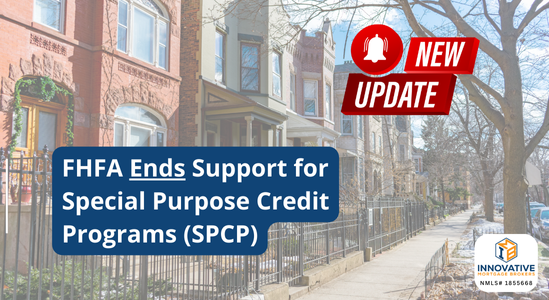The trucking industry is the backbone of American commerce, keeping goods moving across the country…
Navigating Post-Pause Student Loans: How Homebuyers Can Safeguard Their Mortgage Power
As the pause on federal student loan payments, implemented under the CARES Act due to the COVID-19 pandemic, is set to end on August 29, 2023, many homebuyers are facing an uncertain financial future.
The federal pause on student loan payments and interest, which was implemented at the start of the COVID-19 pandemic in March 2020, is set to end. Interest on student loans will resume on September 1, 2023, and required payments will restart in October 2023. This could result in a “payment shock” for many borrowers who are not financially prepared to handle this additional monthly expense. According to a recent survey from U.S. News & World Report, only 30% of borrowers are aware of when their payments will resume, and nearly half say they are not financially ready to start repaying their student loans.
The moratorium included all federally held student loans, regardless of the loan servicing company. However, some types of loans were not eligible for the pause. As payments restart, it’s important for borrowers to contact their student loan servicer to provide current information and reestablish automatic payments.
With the resumption of student loan payments, many potential buyers may experience a decrease in their purchasing power. This is because lenders consider a borrower’s debt-to-income ratio when determining loan eligibility. The reintroduction of student loan payments into the mix can increase this ratio, potentially leading to lower loan approval amounts. Consequently, buyers may find themselves facing limited options and might have to consider homes and neighborhoods that were not their original preference.
Don’t Lose Hope: Solutions Are Available
Despite these challenges, it’s crucial not to lose hope. There are resources available that can significantly reduce student loan payments by adjusting them according to your current financial situation.
Income-Driven Repayment Plans
For those who may struggle with the resumption of payments, considering an income-driven repayment plan could be beneficial. These plans make monthly payments more manageable and prevent borrowers from missing payments or defaulting. The new SAVE plan, announced by President Biden, caps monthly payments at 5% of discretionary income, down from 10% under the previous REPAYE plan
Student Loan Forgiveness Programs
Moreover, you may even be eligible for a student loan forgiveness program. These programs can forgive a portion, or even all, of your student loan debt after a certain period of making payments.
If you consistently make your Income-Based Repayment (IBR) for 20 years, or 25 years if the debt is associated with graduate school studies, the remaining debt will be forgiven. However, it’s crucial to understand that the forgiven amount will be considered taxable income for that particular year. This scenario is often referred to as the “tax bomb,” and we strongly advise consulting with a licensed tax professional to fully comprehend its implications.
On the other hand, if you are employed by an approved 501(c)3 Non-Profit organization such as a hospital, university, foundation, charity, among others, your debt could be forgiven after ten years of employment coupled with regular IBR payments. The advantage here is that the forgiven debt does not count as taxable income. We recommend discussing these options with your licensed tax professional to ensure you are making the most informed decisions.
Beware of Consolidation Traps
However, a word of caution is necessary here. Numerous companies will try to consolidate your federal student loan debt into a private loan. While this might seem like an attractive option, it can rob you of federal protection programs designed to help reduce or even forgive your student loan payments.
Refinancing: Not Always the Answer
Refinancing might seem like the easy answer, but it’s not the right solution for everyone. It’s important to review the numbers, do the math, and explore all options before making a decision.
Informed Decisions for Financial Health
That’s why it’s so vitally important to seek professional advice. A financial advisor can present you with all the possible options available, empowering you to make informed financial decisions about your family’s financial health and well-being.
Control What You Can
While you cannot control the sudden increase in monthly expenses, we can offer peace of mind by helping you understand all of your options and avoid financial surprises in the very near future.
Conclusion: Avoiding a Financial Emergency
The tone may be concerning at the beginning, but there’s hope on the horizon. With the right information and resources, we can get in front of this situation and avoid a financial emergency. So, let’s face this challenge together, armed with knowledge and confidence.
How Innovative Mortgage Brokers Can Help
At Innovative Mortgage Brokers, we can assist in several ways when it comes to student loans and mortgage financing.
First, we provide tailored solutions to meet individual financing needs. This means we take into account the unique circumstances and requirements of each client to create a mortgage plan that best suits them. This personalized approach can make the process of obtaining a mortgage faster, easier, and cheaper.
Also, as a mortgage broker, at Innovative Mortgage Brokers we act in the best interest of the client, not the lender. We conduct research to find the best available mortgage options, offering independent, objective advice This can help ensure clients get the most favorable terms and rates for their mortgage.
Lastly, at Innovative Mortgage Brokers we have significant experience in handling challenging transactions, which equips us with the necessary skills and knowledge to navigate complex situations and secure a mortgage in even the most difficult circumstances.
In conclusion, we can help potential homeowners by providing tailored mortgage solutions, independent advice, and expertise in dealing with challenging transactions.





